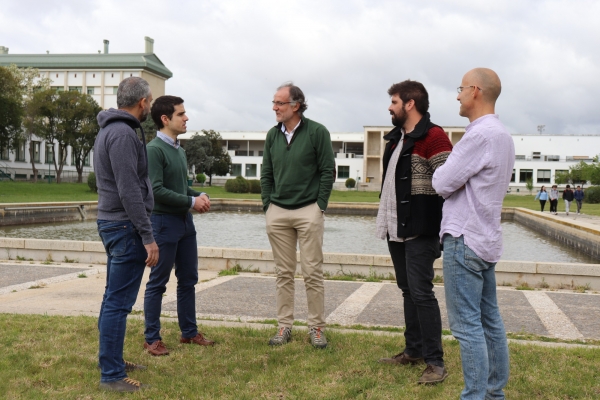The increase in pollution, scarce resources, water crises, and the extinction of species are some of the major challenges that humanity will face in the coming decades. These are global challenges of a transnational nature and, as such, cannot be tackled by any one government or organization alone, but rather require global responses on a large scale involving institutions at the global level.
This is, at least, the philosophy of the COOP + international research, an effort under the auspices of the Horizon2020 European funding programme, coordinated by the University of Cordoba. Its main objective is to strengthen links and coordination between different European Union research infrastructures and other international ones.
Unlike other projects, the consortium is comprised of research infrastructures, tools financed by the EU states, their aim being to provide the scientific community with a range of different services. Particle accelerators and radio telescopes are good examples of infrastructure in the field of Physics. In the area of the Environment, and on this project in particular, four European research infrastructures related to Marine Science (EMSO), Arctic and Atmospheric Research (EISCAT), Carbon Observation (ICOS) and Biodiversity (LifeWatch) are participating. These are specialised centres founded over the last few years. Despite still being in the development phase, they could star in scientific advances in the coming years in different fields of research if they can be coordinated to pursue common objectives.
As the person in charge of the project, Francisco Javier Bonet, points out, the study seeks to analyse to what extent these infrastructures, of varying natures, are sufficiently prepared to tackle environmental and global challenges. "The objective is to put these four infrastructures to work together, coordinate them with similar ones in other regions, study their strengths and weaknesses and analyse how they can do their part to help solve these challenges," the investigator stressed.
For this purpose different study cases have been chosen, such as changes in the Earth's nitrogen cycle due to human activity, and plastic pollution in the oceans. The University of Cordoba, in particular, has focused on the evaluation of the research infrastructures available in the Mediterranean region to address environmental challenges on the coast, such as the rise in sea level, urban pressure and erosion. It has also evaluated the extent to which the information in the fossil record on the distribution of species can help us to understand the ecological dynamics of other current species in order to design methods to help minimise the crisis affecting biodiversity.
The purpose of all this data is to sow common ground for the development of a global infrastructure network that works together, in a coordinated manner, to address global environmental challenges. In addition, they could constitute a starting point to forge connections between these research infrastructures and the public agencies responsible for decision-making.
Faced with this global change, the scientific community's alternative is based on the collection of data that helps channel actions. However, according to the main researcher on the project, "addressing environmental challenges on a global scale requires not only scientific research and knowledge, but also a change of mentality in society".


